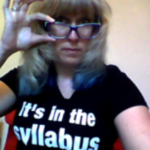Technological advances and access to technology have greatly changed the everyday experience of many communities around the world, especially here in America. Everything from access to information, training, and the ability to connect with people in different geographical areas, have made the process of connection much different than it was ten, twenty, or thirty years ago.
According to Internet World Stats, 84.9% of the population in the United States have internet access or are internet users. Avenues of communication in greater society have been largely replaced with social media platforms, email, video chats, and online learning systems; these same systems are translating to Paganism as well.
The impact of living in a booming technological age on Paganism has shown how interesting advances can enhance or hamper community connectivity. Building community looks much different when there is access to smart phones, iPads and computers, and the ability to generate connection among people can become more about branding than about personable connection that we find in consistent face to face engagement. As technological advances continue to thrive, so does the Pagan community in numbers, yet the freedom that the internet provides can add to misinformation, increased access to rumors, and national attention to otherwise local issues that happen within the Pagan community. Everyone can be an expert in the age of the internet, and all problems are at the fingertips of people around the globe. The increased access to training, research and information does not erase the potential problems that come from the use, and abuse, of technology in Modern Paganism.
The positive and negative impact of increased advances affect areas of community building, publishing, entertainment, small magical or metaphysical shops, organizational structures, information exchange, the media, and a host of other areas in our everyday world. Communities and organizations within Paganism are adjusting to the new ways of functioning efficiently within our modern times, which often highlights differences in cultural aspects of age and socioeconomics. We have seen this, for example, with how some organizations are moving towards the use of online telecommunication formats to incorporate more effective mediums for business, and national communication among members.
In exploring a few of the many areas that technology reaches within modern Paganism, I spoke with several people for perspective on the impact that these changes have had, and are having. As the circumference of the Pagan community has expanded, intersecting interactions have increased the usefulness of different methods of communication, connection and business.

Rachael Watcher
Rachael Watcher, National Interfaith Representative for Covenant of the Goddess (COG), has been doing a lot of work within Pagan and interfaith organizations on a national level. In addition to interfaith work with COG, she is the North American Interfaith Network Regional Coordinator (NAIN) and works with the United Religions Initiative. Her work expands to areas of the world that require technology to access.
How have you seen technology incorporated into Pagan organizations and how does this contribute to the organizational function?
Over the past, umm, say twenty plus years, technology has changed a great deal. As people have become more accustomed to using the internet, attitudes too have changed. I remember a gathering of one of my traditions back in the, possibly early nineties. I suggested that we develop a list to share information and make communications easier among us. Such a hue and cry you have never heard. “Oh we can’t do that. Everyone would be able to see what we are discussing…even the secret stuff wouldn’t be safe anymore. No absolutely not!” So of course I purchased a domain name, put up a simple web site and put together a list making it clear that if one wished to be on that list an individual would have to let me know. Well pretty soon everyone was on the list. A few years later the list went down for some reason and once again a hue and cry went out, this time because the list was down and OMG how was anyone going to communicate, accompanied by appropriate hair pulling and teeth gnashing.
Today, the term “Google” is a household word meaning “to go out and search for”; the first thing on a new organization’s to do list is put up a website, and list serves are a mandatory part of doing business. As the technology improves, so does our ability to communicate virtually, without the need for carbon footprint.
How do you feel that the use of technology has changed the Pagan organizations you work with?
With the advent of virtual communications the face of paganism has changed drastically. Before the use of electronic connections anyone interested in becoming an “official” pagan had to ultimately connect with others doing the work. You will hear many stories from the fifty plus set about how they became pagans because they picked up one of the old magazines and found contacts, or were inspired to search for contacts and training. People knew one another and knew who they were.
The up side to all of this is our new ability to gather for meetings without the necessity of even leaving the house. It allows us to come together in greater numbers and have a larger say in the structure of our organizations allowing parents, the less abled, and those who must work, to join in meetings as never before and all without leaving such an oppressive carbon footprint.
Organizational bylaws are changing to allow virtual attendees to count for quorum where such issues are important and the alarming trend for organizations such as the Covenant of the Goddess, who meets once a year somewhere in the United States, to become an organization controlled by those with the funds to travel is certainly mitigated.
Perhaps best of all, people are coming to know us, at worst as harmless, and at best as people with serious theological underpinnings. In my work as an interfaith representative I have often referred folks to various web pages that saved hours of explanation, and frankly a quick bit of research during lunch in my hotel room has saved me serious embarrassment when dealing with religions with which I had not been familiar.
M. Macha NightMare (Aline O’Brien), elder and Pagan author, works as an interfaith activist and works in several different capacities within the community. In her work as a member of the Cherry Hill Advisory Board member, and as a web weaver, technology plays a vital role in her work.

Aline “Macha” O’Brien
As an elder in our community, I imagine you have seen a lot of technological changes that are now incorporated in modern Paganism. What are some of the largest changes within in the past 10-20 years that now are common uses for technology in our community?
Change has come so fast and furious that I’m dazzled by its variety and complexity. Media have combined to give us immediate updates and gales of opinions of every little topic that sparks a flame. I try to stay current. I have a cellphone and laptop and am on Facebook. I subscribe to lists and groups where discussion can be rich. Just as readily discussion can become heated and obnoxious. As a social person, I find I have an appetite for engaging in civil discourse. I find I’m easily seduced by all those virtual venues where ideas are shared. The downside of that is such engagement can be a time-suck if you don’t maintain strict limits.
Do you think these changes have had more positive or negative impact on the current state of our community?
I definitely think these changes have had a positive effect overall. Before the advent of the Internet, we had only fragmented communities and a tendency towards mistrust. Over the years since Internet access has become more common, especially among younger people, we have used electronic communication to build virtual communities as well as to fortify and enhance efficient communication regarding our terraspace communities. Further, we are able to mobilize quickly if we choose to.
Today we have news sites and networking sites, music and podcasts, special interest sites, as well as scores of blogs and vlogs — anything on everything. Of course, there is the matter of discerning what sources warrant our trust for their accuracy, reliability, and thoroughness and which tend to be more superficial and inflammatory. But you have that with any media.
As for teaching, while some kinds of magic-spiritual teachings must be in person, many kinds of teaching and learning can be done effectively online. Plus, online learning is greener. We now have institutions of higher learning where all or most of the campus is virtual. Cherry Hill Seminary, for instance, except for annual in-person intensives, is entirely online, with cool Moodle classrooms, a virtual library, online bookstore. We Pagans are a small, widely spread demographic, making conventional terraspace learning environments (i.e., schools with classrooms) impractical. Thus, a teaching and learning institution’s cyberspace presence has made scholarly online learning more readily available to Pagans wherever they may live.

Dr. Amy Hale
Education and research continues to be a major aspect of need within the Pagan community. Access to training, information and education around the many different intersecting areas of study has always been a source of discussion, but the methods for attaining such things has drastically changed. We have also seen an increased emphasis placed on higher education, and an importance placed on the value of academic study. Professor Dr. Amy Hale has worked extensively in designing and teaching within online academic formats.
As a professional that works in higher education, do you find that the use of technology in learning modalities are more accepted today than say 10 years ago?
Absolutely! Educational technologies are becoming ubiquitous, and are found in all sorts of environments in addition to strictly educational settings. We are seeing the use of technology to support everything from on site and contextual training for businesses to the use of mobile phones to educate children in combat areas. As technologies develop, we figure out how to teach and learn with them, and as ever, the first to benefit (which may surprise some) are frequently underserved populations and women. Of course, not everyone is an educational technology advocate, some prefer the low tech approach, but I believe the benefits are clear.
How do you see the changing role of technology influencing modern Paganism and what can we learn from higher education institutions in this area?
Technology is, in my view, the driving force behind modern Paganism. Communication and information technologies give us a way to learn, share and create community. While I have occasionally heard concerns about “internet solitaries” who some believe may not be as connected to live Pagan communities, I see no reason to assume that Pagans connected primarily by the internet are any less genuine or living their Paganism in a way that is any less “authentic”.
But technology is changing the way we think, and we need to be aware of how. As when the printing press first came into use, many modern information technologies have the great ability to challenge our relationship with authority and promote a democratization of information. This, however, does not mean that all information is good and that all opinions are equally valid. This is why we have a much, much greater responsibility to foster critical thinking and a need to understand how to assess the mountains of information we have access to. We are well past the time when the professor or teacher or church is the ultimate authority, and certainly in many educational settings we are embracing this development. We need to have the tools to think for ourselves and to know how to craft solid arguments, and we need to learn to do this with respect and civility. I would like to see Pagans become more rigorous thinkers and better assess their sources. So many Pagans out there on the internet seem to lack basic information literacy in that they don’t know how to tell if a source is valid or if an argument is well supported. I think this is the challenge that all educational professionals face today, and this is the direct result of the free flow of information.
Cherry Hill Seminary is one of the ways that we have seen this method of higher education exchange take on technology to facilitate learning. Cherry Hill is currently teaching in an all online format.

Tim Titus
Blogger Tim Titus wrote a recent piece about social media and the way that negative engagement can influence how people engage. Some of the unintended consequences of social media and the influx of online communication has contributed to emerging patterns in the development of community building. In Tim’s piece, Surviving Social Media’s Ocean of Negativity, he discusses some of his observations. “But the problem I have is that most of the nastiness that circulates around social media, both within and without the pagan community, is petty and exhausting. There’s always someone complaining about life, the universe, and everything. They complain about their work day; they beat dead horses about situations that were resolved long ago; they call out friends for silly things. We have all this amazing technology to build community around the world, and we use it as our personal bitching platform. If anger and argument were a drug, we’d need a national 12-step program.?”
In a small snapshot of how technology plays an intricate role in Modern Paganism, we see that there these forms of communication and engagement have become an intricate part of the format that we now exist within. The continued growth of our community will rely heavily on how these forms of technology are used and instituted in our functioning practice.
While there are a lot of positive connections that are made with the use of technological advances, we also have some interesting consequences that are a result of the fast paced environment that is created with immediate access to so much information, and lightning fast responses. As much as we thrive as a community with the use of additional methods of research, education, connection, and organizational options, we are also faced with the concept that this level of interaction moves a community into a fast paced momentum that can add to some steep learning curves and promote additional division in the ranks.
This is a large topic that could benefit from continuous unpacking. Exploring this topic brings us to some interesting questions we can ask ourselves in the process of community exploration. Has technology replaced some of the need for interactive personal contact within the Pagan community? How has the definition of community evolved with the use of this level of technology? Does technology give us the chance to connect more often, or does it create a barrier to genuine connection that builds healthy interpersonal relationships?
All very important questions to consider as we are enjoying the access that our various devices give to us, and that we are able to use in our experiences of Modern Paganism.
The Wild Hunt is not responsible for links to external content.
To join a conversation on this post:
Visit our The Wild Hunt subreddit! Point your favorite browser to https://www.reddit.com/r/The_Wild_Hunt_News/, then click “JOIN”. Make sure to click the bell, too, to be notified of new articles posted to our subreddit.

The internet is a double edged blade.
On the one hand, it allows people from all over the world to connect with those of like mind, regardless of distance.
On the other hand, it can actually really isolate people.
Most religions have a social function and this is solidified by group activity, be it the Sunday service, feast day celebrations of specific rituals.
This cannot work online. You just can’t do it.
Sure, use the internet to find people, but then don’t stop there, make that next step of meeting these people and see if physical, real community cannot be forged.
Riffing on the blade metaphor: the internet is Occam’s Razor of Damocles.
I find the simplest solution is usually the wrong one. :p
What should be noted is that no one is even trying to digitize Crystal Well, The Georgian Newsletter or the other periodicals that helped create a sense of identity beyond that of group or region. There are no archives of GEnie, Delphi or the Compuserve forums that existed prior to about 1992. So the earliest discussions of many topics have disappeared with these Services. This creates what amounts to a massive gap in our histories that tends to skew all references forward–if it can’t be found on the Way back Machine, the events and discussions that are topical now appear to be younger than they were/are.